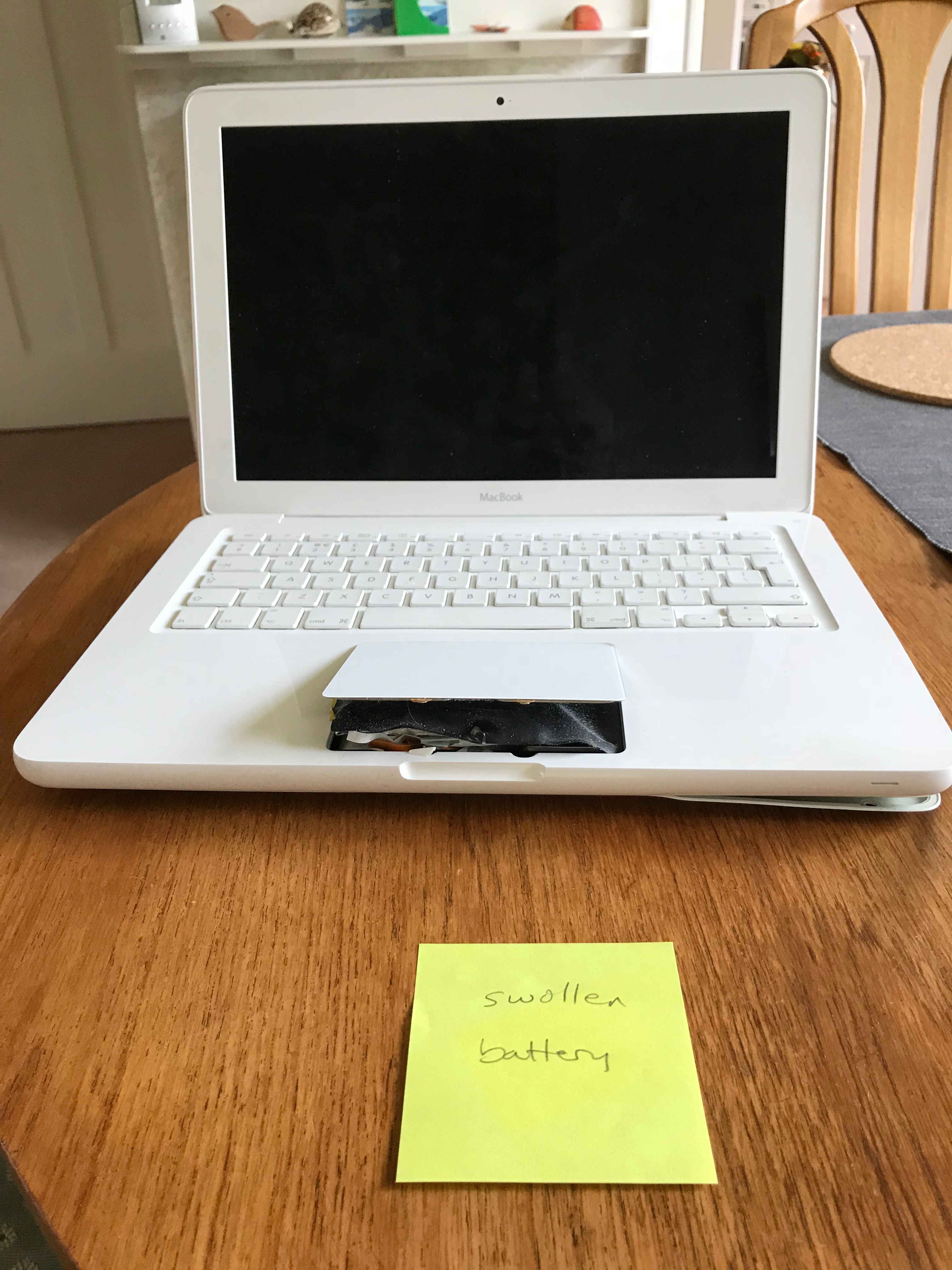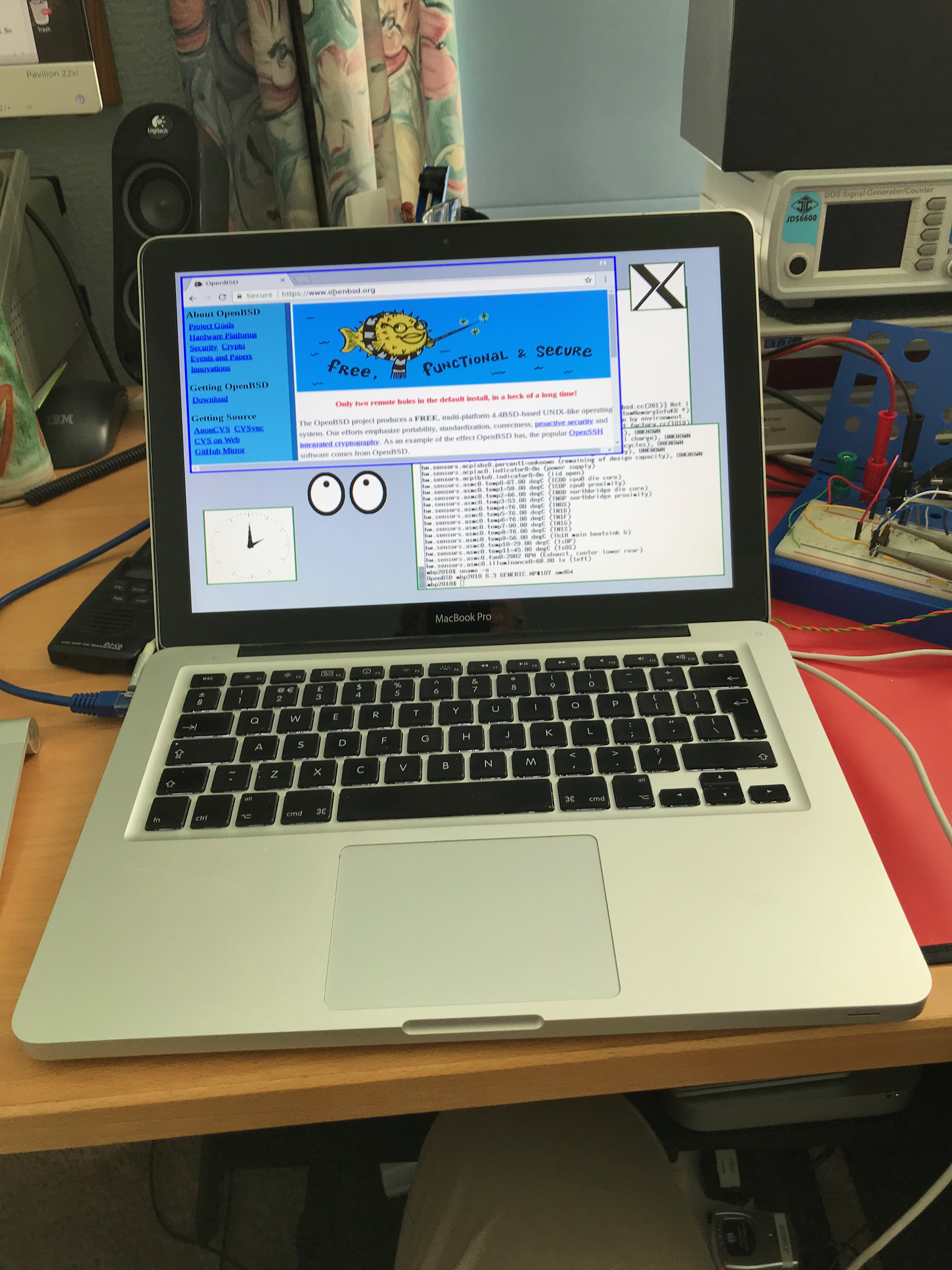Andrew Fletcher - OpenBSD
My Apple Macbook Pro (2010 model) had a hard disk failure and I unthinkingly replaced the hard drive with a cheap (but much bigger) drive. This made MacOS run like a dog – it was taking over five minutes after power on to get to the point where you could do anything. So I bought a newer MBP in 2017 and while I used it, the battery in the 2010 MBP swelled up and made it so the trackpad wouldn’t work. This also happened to my wife’s Macbook – here’s the

I’ve ‘fixed’ both by removing the batteries and the trackpads now work fine.
My wife’s Macbook is being used as a MacOS 10.6.8 (Snow Leopard) machine as this is the last MacOS which allows various applications to run.
My 2010 Macbook Pro was too slow due to my poor hard disk replacement decision. so I looked for a solution. I first used UN*X in the early 1980’s (ironically Xenix by Microsoft), and then used various UN*Xes – notable BSD and HP/UX. When Linux came along I used Centos as it was easy to install on the cast-off computer servers I was playing with, but I largely ignored it until I started using the Raspberry Pi. I like Linux and it is definitely a force for good in the world, but I find it difficult to configure despite my ancient UN*X knowledge. So I tried various flavours of UN*X and finally stumbled on OpenBSD.
OpenBSD isn’t Linux (you can read where it came from on the OpenBSD web site). Anyway, I felt I had come home. The install is very easy, the configuration is all in /etc or in the user’s home directory and all the documentation is on the system – the man pages are really good. There are virtual consoles which take up the whole of the screen which are easy to switch between. When you need a graphical interface there’s a great X-Windows window manager called cwm which can be driven by a mouse – or entirely by keyboard.
So my old MBP has a new lease of life.

I’m using it to:
- edit these pages using vi;
- get screenshots using xwd and convert to JPG or PNG with ImageMagick;
- prepare for the web using make and MultiMarkdown;
- source control of these pages using git;
- look at the pages using the firefox web browser;
- handle mail using thunderbird;
- read RSS news feeds using thunderbird;
- read Wikipedia offline using the kiwix firefox plug-in;
/etc